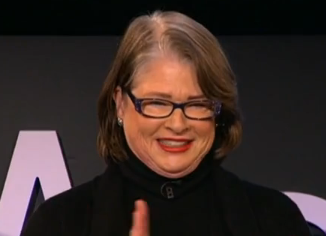How did this happen? Well, we're no genetically hardier than our ancestors were 10,000 years ago.
这是怎么发生的?我们并不是在基因上比一万年前的祖先强壮。
This increase in life expectancy is the remarkable product of culture
平均寿命的增加全要归功于文化,
the crucible that holds science and technology and wide-scale changes in behavior that improve health and well-being.
一个包含了科学和技术以及广泛的(社会)行为改变的熔炉,导致人们的健康和福利的增进。
Through cultural changes, our ancestors largely eliminated early death so that people can now live out their full lives.
通过文化的改变,我们的祖先大幅度地消除了早亡,所以现在的人可以走完完整的一生。
Now there are problems associated with aging -- diseases, poverty, loss of social status.
老龄化催生了很多问题,疾病、贫困、社会地位的丧失。
It's hardly time to rest on our laurels.
这可不是坐享荣誉的时候。
But the more we learn about aging, the clearer it becomes that a sweeping downward course is grossly inaccurate.
不过当我们研究的越多,老龄化就变得越清晰,把它说成是一条单纯的下坡路是非常不准确的。
Aging brings some rather remarkable improvements -- increased knowledge, expertise and emotional aspects of life improve.
衰老也带来一些非同凡响的进步,知识的增加,专业的精深,人生的情绪层面也有所提升。

That's right, older people are happy.
这句话很对,老年人是快乐的。
They're happier than middle-aged people, and younger people, certainly.
他们比中年人更快乐,更理所当然地比年轻人更快乐。
Study after study is coming to the same conclusion.
一个又一个的研究证实了相同的结论。
The CDC recently conducted a survey where they asked respondents simply to tell them
疾病防治中心(CDC)最近进行了一次调查,他们简单地要求受试者来报告,
whether they experienced significant psychological distress in the previous week.
在过去的一周里自己是否经历了重大的心理困扰。
And fewer older people answered affirmatively to that question than middle-aged people, and younger people as well.
老年人承认有这类问题的比中年人少,也比年轻人少。
And a recent Gallup poll asked participants how much stress and worry and anger they had experienced the previous day.
一项近期的盖洛普调查询问参与者有多少压力、焦虑和愤怒情绪他们在前一天体验过。
And stress, worry, anger all decrease with age.
压力、焦虑、愤怒都随着年龄增长而减少。












